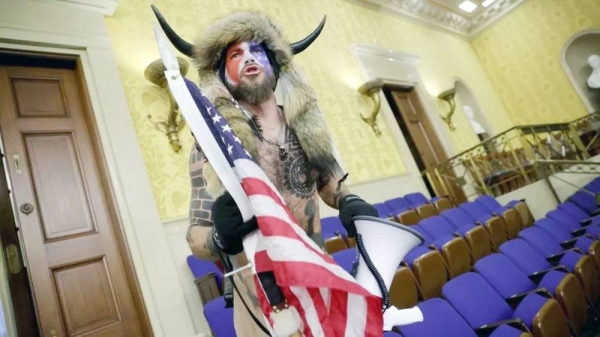
Many phrases associated with QAnon have largely disappeared from mainstream social media, mostly because of the platforms" "belated efforts" to crack down on the conspiracy theory, researchers at a U.S. think tank said on Wednesday.
QAnon is a baseless, sprawling set of beliefs that first arose from anonymous Web postings by "Q", who claimed to have insider knowledge of former President Donald Trump"s administration, and later took on a life of their own.
The conspiracy exploded in popularity during the COVID-19 pandemic, amplified through multiple social media platforms where the use of QAnon catchphrases like "we are the storm", "great awakening" and "trust the plan" was widespread.
But the volume of those terms seen on Alphabet"s (GOOGL.O) Google, Facebook (FB.O) and Twitter (TWTR.N) has nosedived since the sites began cracking down on QAnon, particularly after the Jan. 6 riot at the U.S. Capitol, said researchers at the Atlantic Council"s Digital Forensics Lab. read more
The researchers analyzed more than 40 million online instances of QAnon catchphrases and terms from January 2020 to April 2021.
Their report said the recent trend showed "the QAnon movement may be moving on from Q as it once defined itself and morphing during Biden"s presidency".
A mix of factors appear to have contributed to the decline, including a months-long pause in posts from "Q" and followers" disillusionment over Trump leaving office without realising their hopes of a crackdown on a supposed cabal of powerful Satanist pedophiles. Trump remains blocked on Facebook, Twitter and YouTube. read more
But the researchers said the reduction in typical QAnon discussions correlated most strongly with major social media platforms" moves to counter the conspiracy by removing accounts connected to it. See the report: (https://bit.ly/3wAXlAx)
The findings do not mean that the conspiracy theory is vanishing altogether. QAnon accounts have been seen to evade sites" restrictions by avoiding certain terms and using new coded language.
"Our search was limited to what has been traditionally thought of as the hallmarks of QAnon," said researcher Jared Holt in a phone interview.
The report also said alternative social media sites like Parler and Gab had seen swells in QAnon language but that in terms of volume those those peaks still paled in comparison to mainstream platforms" slowest days.
Parler attracted more QAnon-related than the other alternative social platforms analyzed. The app, popular with U.S. conservatives, has recently been restored to Apple"s App Store after major tech platforms cut ties with it following Jan. 6. read more
The analysis did not include data from private social media groups, messaging apps like Telegram or alternative video site Rumble due to difficulties in obtaining data.












